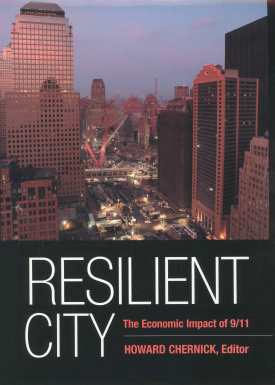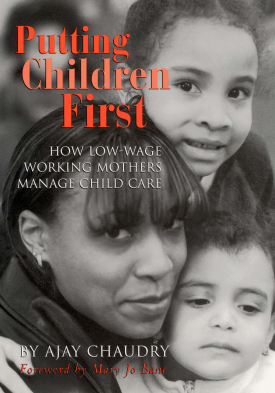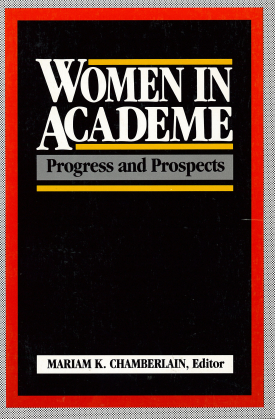
Resilient City
About This Book
The strike against the World Trade Center on September 11, 2001, was a violent blow against the United States and a symbolic attack on capitalism and commerce. It shut down one of the world’s busiest commercial centers for weeks, destroyed or damaged billions of dollars worth of property, and forced many New York City employers to slash their payrolls or move jobs to other areas. The immediate economic effect was substantial, but how badly did 9/11 affect New York City’s economy in the longer term? In Resilient City, Howard Chernick and a team of economic experts examine the city’s economic recovery in the three years following the destruction of the Twin Towers.
Assessing multiple facets of the New York City economy in the years after 9/11, Resilient City discerns many hopeful signs among persistent troubles. Analysis by economist Sanders Korenman indicates that the value of New York–based companies did not fall relative to other firms, indicating that investors still believe that there are business advantages to operating in New York despite higher rates of terrorism insurance and concerns about future attacks. Cordelia Reimers separates the economic effect of 9/11 from the effects of the 2001 recession by comparing employment and wage trends for disadvantaged workers in New York with those in five major U.S. cities. She finds that New Yorkers fared at least as well as people in other cities, suggesting that the decline in earnings and employment for low-income New York workers in 2002 was due more to the recession than to the effects of 9/11. Still, troubles remain for New York City. Howard Chernick considers the substantial fiscal implications of the terrorist attacks on New York City, estimating that the attack cost the city about $3 billion in the first two years alone; a sum that the city now must make up through large tax increases, spending cuts, and substantial additional borrowing, which will inevitably be a burden on future budgets.
The terrorist attacks of September 11 dealt a severe blow to the economy of New York City, but it was far from a knock-out punch. Resilient City shows that New York’s dynamic, flexible economy has absorbed the hardships inflicted by the attacks, and provides a thorough, authoritative assessment of what, so far, has been a strong recovery.
HOWARD CHERNICK is professor of economics at Hunter College of the City University of New York.
CONTRIBUTORS: Joshua Chang, Oliver D. Cooke, Franz Fuerst, Andrew F. Haughwout, Edward W. Hill, Sanders Korenman, Iryna Lendel, James A. Parrott, Cordelia W. Reimers, Jonathan A. Schwabish.
A September 11 Initiative Volume
RSF Journal
View Book Series
Sign Up For Our Mailing List
Apply For Funding

Putting Children First
About This Book
Semi-Finalist for the Robert F. Kennedy Memorial Book Award
In the five years following the passage of federal welfare reform law, the labor force participation of low-income, single mothers with young children climbed by more than 25 percent. With significantly more hours spent outside the home, single working mothers face a serious childcare crunch—how can they provide quality care for their children? In Putting Children First, Ajay Chaudry follows forty-two low-income families in New York City over three years to illuminate the plight of these mothers and the ways in which they respond to the difficult challenge of providing for their children’s material and developmental needs with limited resources.
Using the words of the women themselves, Chaudry tells a startling story. Scarce subsidies, complicated bureaucracies, inflexible work schedules, and limited choices force families to piece together care arrangements that are often unstable, unreliable, inconvenient, and of limited quality. Because their wages are so low, these women are forced to rely on inexpensive caregivers who are often under-qualified to serve the developmental needs of their children. Even when these mothers find good, affordable care, it rarely lasts long because their volatile employment situations throw their needs into constant flux. The average woman in Chaudry’s sample had to find five different primary caregivers in her child’s first four years, while over a quarter of them needed seven or more in that time.
This book lets single, low-income mothers describe the childcare arrangements they desire and the ways that options available to them fail to meet even their most basic needs. As Chaudry tracks these women through erratic childcare spells, he reveals the strategies they employ, the tremendous costs they incur and the anxiety they face when trying to ensure that their children are given proper care.
Honest, powerful, and alarming, Putting Children First gives a fresh perspective on work and family for the disadvantaged. It infuses a human voice into the ongoing debate about the effectiveness of welfare reform, showing the flaws of a social policy based solely on personal responsibility without concurrent societal responsibility, and suggesting a better path for the future.
AJAY CHAUDRY is a writer on social policy issues and a faculty and senior research fellow in urban policy and management at New School University.
RSF Journal
View Book Series
Sign Up For Our Mailing List
Apply For Funding

Women in Academe
About This Book
The role of women in higher education, as in many other settings, has undergone dramatic changes during the past two decades. This significant period of progress and transition is definitively assessed in the landmark volume, Women in Academe.
Crowded out by returning veterans and pressed by social expectations to marry early and raise children, women in the 1940s and 1950s lost many of the educational gains they had made in previous decades. In the 1960s women began to catch up, and by the 1970s women were taking rapid strides in academic life. As documented in this comprehensive study, the combined impact of the women’s movement and increased legislative attention to issues of equality enabled women to make significant advances as students and, to a lesser extent, in teaching and academic administration. Women in Academe traces the phenomenal growth of women’s studies programs, the notable gains of women in non-traditional fields, the emergence of campus women’s centers and research institutes, and the increasing presence of minority and re-entry women. Also examined are the uncertain future of women’s colleges and the disappointingly slow movement of women into faculty and administrative positions.
This authoritative volume provides more current and extensive data on its subject than any other study now available. Clearly and objectively, it tells an impressive story of progress achieved—and of important work still to be done.
MARIAM K. CHAMBERLAIN is founding president of the National Council for Research on Women.
CONTRIBUTORS: Helen S. Astin, Jean W. Campbell, Mary Ellen S. Capek, Maren Lockwood Carden, Mariam K. Chamberlain, Carol Frances, Jane Gould, Lilli S. Hornig, Florence Howe, Marjorie Lightman, Virginia Davis Nordin, Patricia Ann Palmieri, Bernice R. Sandler, Cynthia Secor, Donna Shavlik, Margaret C. Simms.
RSF Journal
View Book Series
Sign Up For Our Mailing List
Apply For Funding
Pagination
- Previous page
- Page 96
- Next page
